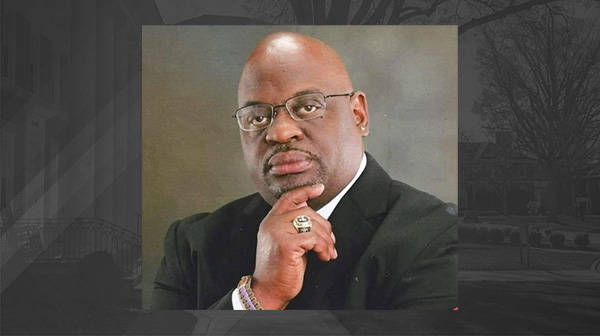
People Magazine Highlight Green’s Forgiveness Journey
Darryl Green ’89 of Baltimore believes so deeply in the power of forgiveness that about 10 years ago, he forgave Kimyon Marshall, the man who murdered Ruben Cotton, Green’s younger brother, in 1988, when Green was a junior at Pfeiffer University, majoring in criminal justice. The story of Green’s journey to forgiveness has attracted the attention of multiple media outlets, including People Magazine (earlier this month), and it’s made him a sought-after speaker on forgiveness around the world.
Green now works to persuade a growing, diverse list of clients that forgiveness is the best, healthiest way forward. He’s even enlisted Marshall as an ally in his pro-forgiveness cause: In 2016, the two started Deep Forgiveness, a nonprofit in which, among other things, forgiveness informs their work with young people to curtail violence on the streets of Baltimore, where an eye-for-an-eye ethos too often prevails.
Green describes himself as “a staunch proponent for libertarian reconciliation and forgiveness” and “an innovative change agent on mental health, healing, social welfare, and restorative justice.” He especially wants to reach people who are “dying of unforgiveness” — people who are just like he was for 25 years until he decided that forgiveness was the only thing that would set him free from an inner rage. He links that rage to everything from high blood pressure to an anxiety-fueled need to never let his guard down in crowds.
“Forgiveness is a process,” he often says when he speaks to groups, stressing that it’s often the most challenging we can undertake.
Green’s speaking engagements, which he does in addition to teaching and pursuing a doctorate in the School of Social Work at Morgan State University, are taking him far and wide. He was in Israel this past February, where he made a presentation at The First International Conference on Forgiving and Being Forgiven with an Inter/Intra Cultural Perspective at Bar-Ilan University. The presentation featured Green and Marshall in an oft-screened “Prison Dialogue” film that goes into depth about the murder, its fallout, and how the two found their way to reconciliation.
As many of Green’s student and faculty friends at Pfeiffer will recall, the story of his forgiveness process began on the University’s Misenheimer campus. He was pulled out of class and told that Cotton was in critical condition after Marshall had stabbed him following an argument over some sneakers at a bowling alley. Cotton would succumb to his wounds four days later.
Green’s world was turned upside down. At Pfeiffer, for example, he had been thriving as a student-athlete: In addition to wrestling for the Falcons in 1984, he became the first African American to play for the men’s lacrosse team (1984-1986), and he was the first male student to win an MVP award for cheerleading, which he did from 1984 to 1988.
But after Cotton died, all that seemed to matter very little. Green fell into a quiet rage he wouldn’t get past for more than two decades. He now says, though, that his forgiveness process began at Pfeiffer. He credits students and faculty there with showing him the kind of support that kept him focused on his studies — and not retaliating against Marshall.
Although Marshall was 14 when he killed Cotton, he was sentenced to life in prison without parole. (Cotton was 17 when he died.) Marshall seemed destined to remain in prison, and Green seemed destined to remain in his own prison of hatred toward Marshall.
However, in 2012, the Supreme Court ruled that sentencing minors to mandatory terms of life imprisonment without the possibility of parole violated the Eighth Amendment to the Constitution. This paved the way for a sentence modification hearing in 2013 that ultimately led to Marshall’s release a short time later.
At the hearing, Marshall read a letter of apology he’d once tried to send to Green and other members of his family. (Mysteriously, the letter never reached Green, having ended up in an attorney’s files.)
Green testified in support of Marshall’s release, having concluded that keeping him locked up for another 30 or 40 years wasn’t going to bring Cotton back. Although Marshall was dressed in a “three-piece suit” of handcuffs and shackles, he was able to shake the hand that Green had extended to him.
“He was crying, I was crying,” Green told people.com. “I said to him, ‘You’ve been known for taking a life, now let’s go save some lives together.’”
They are doing just that — and more, with Green now pursuing a mission to “Change the World” through his pro-forgiveness message.
To learn more about Green’s journey, visit people.com.